Biking Geographically
Reflections on 500 miles of bike commuting
This week's newsletter is pro-biking propaganda. You've been warned.
Before that, though, a bit of personal news–I recently had a piece of fiction published in the latest issue of Weird Lit Magazine. It's not related to ecology or geography in any way, but if strange, existential metafiction sounds like your kind thing then you can check it out here.
The Eco-Update #5
The last decade was the hottest ever recorded on Earth
Not only was 2024 the warmest year on record, globally, but the last decade has been the warmest ever recorded. CO2 levels are higher than any time on Earth in the last 800,000 years. Ocean temperatures are at all-time highs, sea-level rise is accelerating, and glaciers are melting at record speeds. In short, we're continuing to head directly toward global catastrophe.
What types of trees store the most carbon? New research has some answers
Conventional thought has been that faster-growing tree species store more carbon via their higher growth rates. Experimental studies seemed to support this when manipulating conditions to assess tree carbon storage. However, some forest ecologists have speculated that the dynamics of the natural environment might complicate this assumption, and new research suggests that's the case. Species with slower growth rates allocate more energy to defenses against diseases and pests, and also are more resilient to stressors like droughts and storms. This means that they often survive longer than fast-growing species, and ultimately store more carbon, which has interesting implications for how we might manage forests to prioritize carbon sequestration.
Melting glaciers will threaten the food supply of 2 billion people
Glaciers are melting at record speeds, which is already disrupting food production globally. When glaciers melt, massive changes to water distributions follow. More precipitation falls as rain instead of snow, and when the snow and ice melt it causes large increases in runoff. Less ice also increases the temperature, as more solar radiation is absorbed rather than reflected, causing a feedback loop. Glacier meltwater provides water supply to billions of people for drinking as well as for industry and agriculture. If the glaciers disappear, so too does that critical resource. Areas like the Colorado River Basin are particularly at risk, given the ongoing decadal drought and shrinking water supply.
Biking Geographically
Last year I bought an e-bike, and I recently hit 500 miles of commuting on it. While that isn't a ton of miles, it is a lot of trips. I live about a mile from my office, two miles from downtown, and about half a mile from the nearest grocery store. So putting in 500 miles means getting on this bike roughly 500 times. Plus, 500 is a nice round number to do some reflecting.
I've been biking for a while now. In my adult years, I picked it up when I lived in downtown Indianapolis, where I could easily bike to the breweries in Irvington and Fountain Square (which is what I did most of my biking for). When I moved to Bloomington, IN, I started getting more serious about putting miles in. Bloomington is a much smaller city than Indianapolis, so it was much easier to get out to the countryside for longer rides. I started biking with a few friends (Drew and Tim, if you're reading this, we gotta catch up and bike soon), and eventually biking become much more of a regular hobby.
About a year and a half ago I started a job at Penn State University, and when I got here I made it a priority to not just bike for fun (or beer), but to make it my main method of transportation. Hence, the e-bike. Central Pennsylvania is much hillier than Indiana, so I pretty quickly found out that using a traditional bike to get to the office meant showing up with too much sweat and too little air in my lungs.
So, what has putting in 500 miles on an e-bike been like? Pretty great. E-bikes take away all of the hard effort of traditional biking while keeping the fun. They’re simple to use and incredibly reliable for transportation. I use mine every time I go to the office, or go to the library, or meet up with friends downtown, or get groceries or etc etc. I could go on about how cool e-bikes are for a while, but this article in The Atlantic does a great job of hitting the main points.
You might ask, why bike at all? Isn't it inconvenient? Isn't it dangerous being on the road with vehicles? Sometimes. But the benefits far outweigh any of that. A recent study found that people living in areas with more biking infrastructure and greenspaces have lower rates of both hypertension and obesity. Biking is also good for the environment, increasing urban biodiversity by lowering pollution and reducing traffic congestion. Biking is also good for your mental health, your wallet, and your community. I don't want to claim that biking is a panacea, but it's close. One problem is that biking infrastructure (bike lanes, greenways, etc.) are often not distributed equally throughout cities, leaving those in less wealthy areas with less access.
What I want to talk more specifically about, though, is the geography of biking. Biking is an inherently geographic activity. Your bike literally moves you through space, from one place to another. In contrast to the isolation from surroundings while in a car, biking connects you directly to the air, the temperature, the weather, and the topography of the places in which you bike.
I love my bike. My bike is everything to me. My bike is my gym, my church, and my wheelchair. My bike is everything that I believe in going on in the Biosphere. It’s science, it’s technology, it’s the future, engineering, metallurgy - you name it, it’s right there in my bike. My bike is the most important and valuable thing that I have.
- NBA legend Bill Walton
Transportation is often thought of as simply movement from point A to point B, but work around the theory of mobility, and biking specifically, is starting to think more about what meaning the journey has between the points. Does the movement of cycling connect one to their neighborhood in distinct ways? In my experience, yes. When I'm on my bike, I see the other regular bikers on my street. I see people walking their dogs, kids waiting for the school bus, and all kinds of urban wildlife. There's a Free Little Library on my commute that I sometimes stop at to check the books. On a bike I experience my community in a way I otherwise never would.
These experiences are common to those who bike. Urban cyclists report increased feelings freedom, connection to place, and control over their transportation. On a bike, you are not limited to the places only cars can go. You're not limited to sitting in city traffic. Many cyclists feel a connection to their bike, as if it becomes an extension of their body that allows them to move through space in way that brings enjoyment.
Biking is also a form of political resistance. Transportation infrastructure in the US is overwhelmingly designed for automobiles, such that merely being on a bike in these spaces becomes a political act. The bicycle itself has become a meaningful symbol to groups with punk, anarchist, socialist, and environmentalist ideologies. It serves as an instrument of communication, a source of identity, a vehicle for pleasure, and a tool for political critique.
I would also say that biking is a method of geography. It's impossible not to notice your surroundings when on the bike, and I think this leads naturally to considering the patterns one encounters during a ride. Why is one place developed while another is derelict? Why is that high-rise there, while that abandoned lot is over there? Why is this park here and not somewhere else? Why is wealth concentrated in some places and absent in others? Biking forces you to see the way that capitalism manifests spatially. In fact, what is even possible for you to see while on a bike is shaped by this process, because the roads on which you bike are in specific locations for specific reasons.
So what does it mean to bike geographically? In some ways I think it's impossible to not bike geographically. Being on your bike is, by definition, geographic. In other ways, though, I think it requires reflection on the things one encounters during a ride. Biking geographically is not just about freedom of movement, because even that is limited, but freedom in the sense that it opens our eyes to the forces that influence the spaces and places in which we live. Biking geographically means getting on your bike and thinking about what you see.



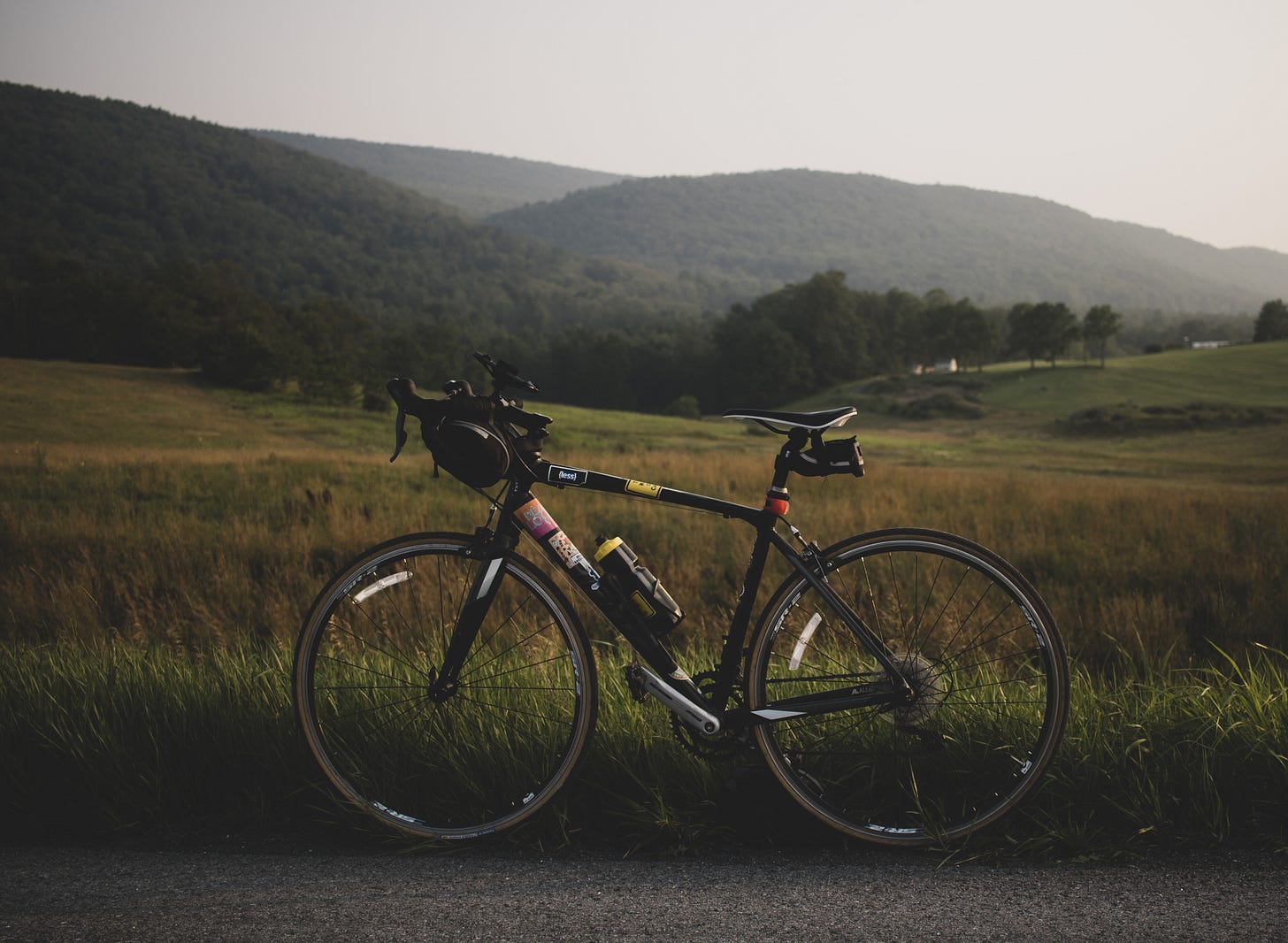
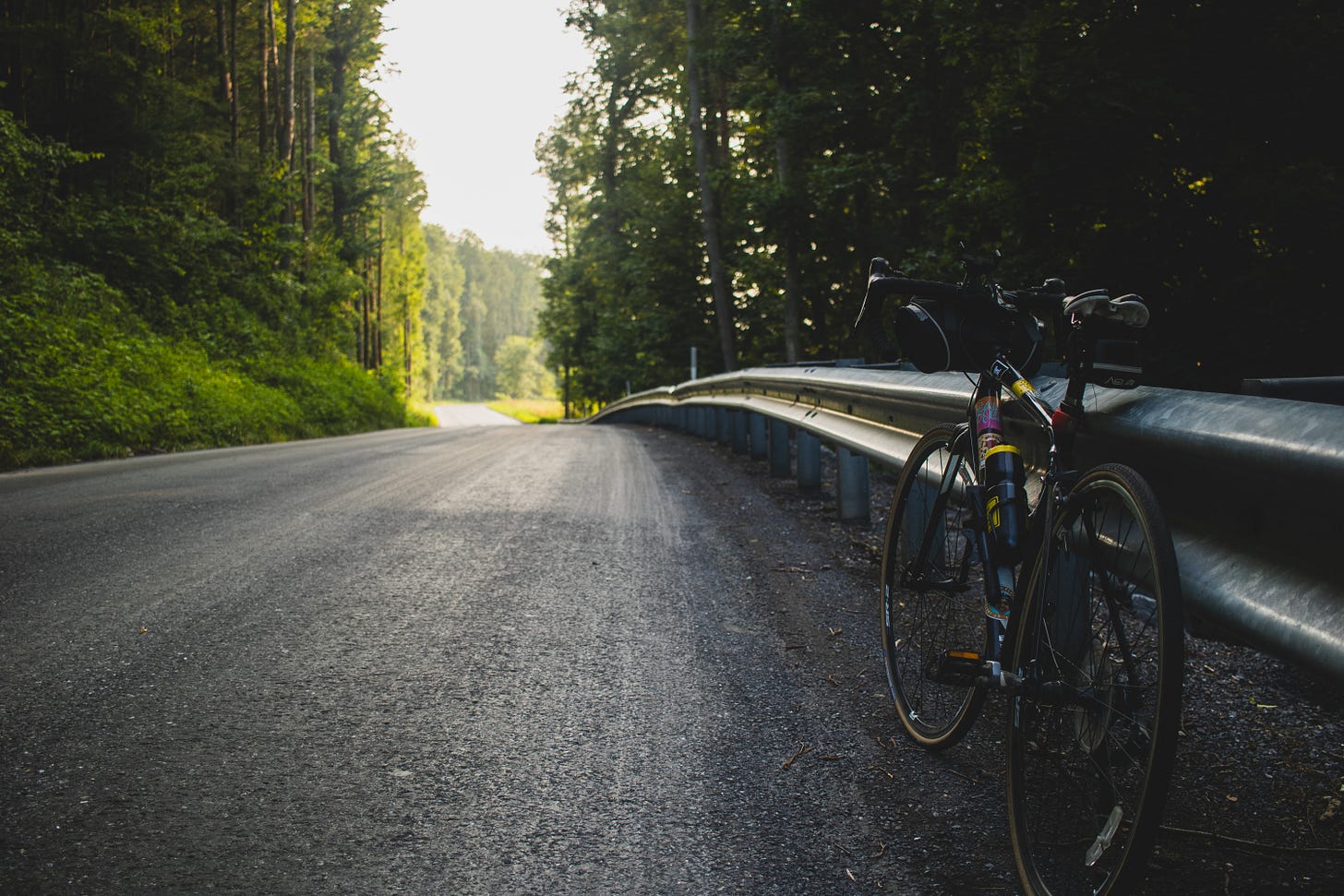
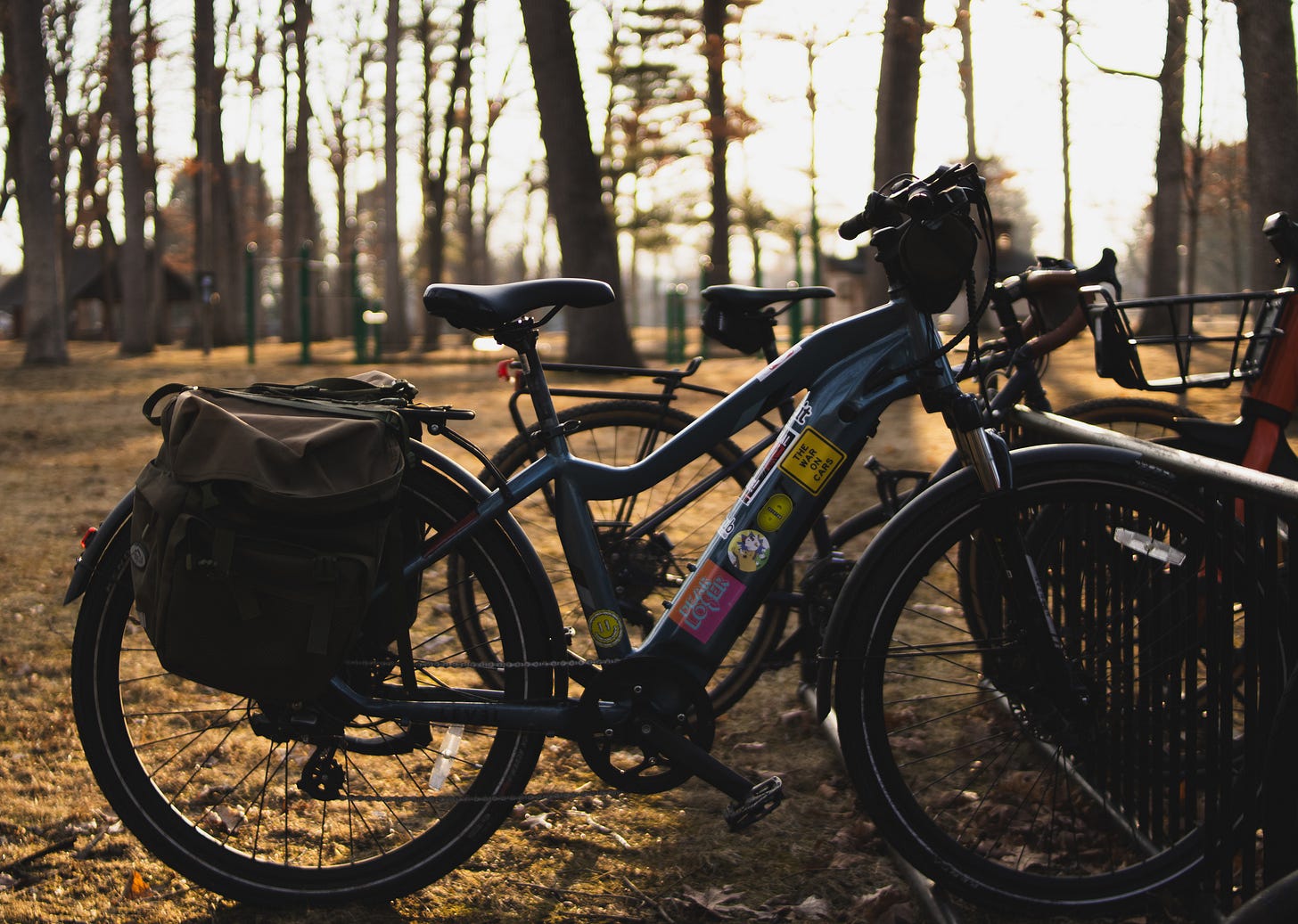
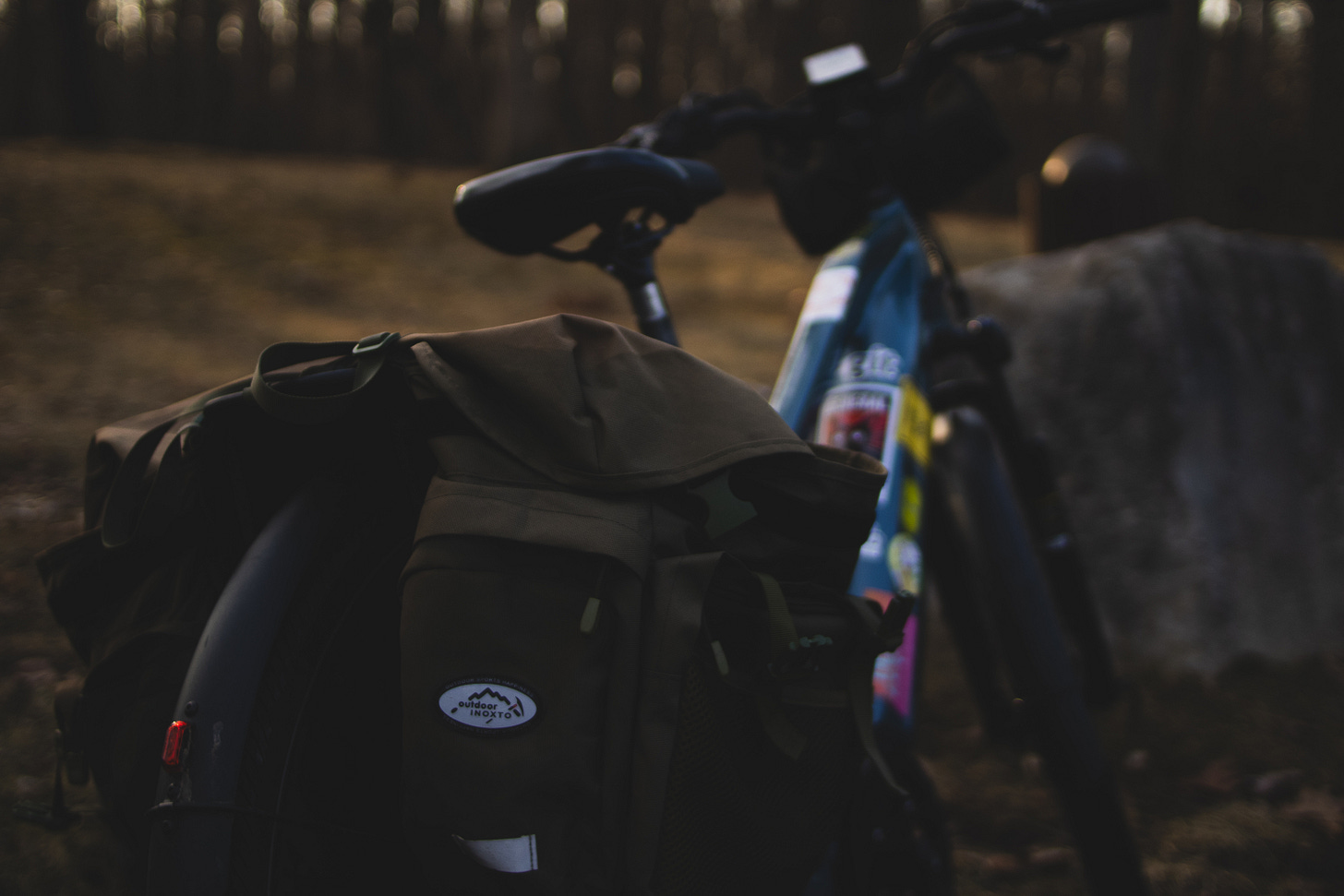
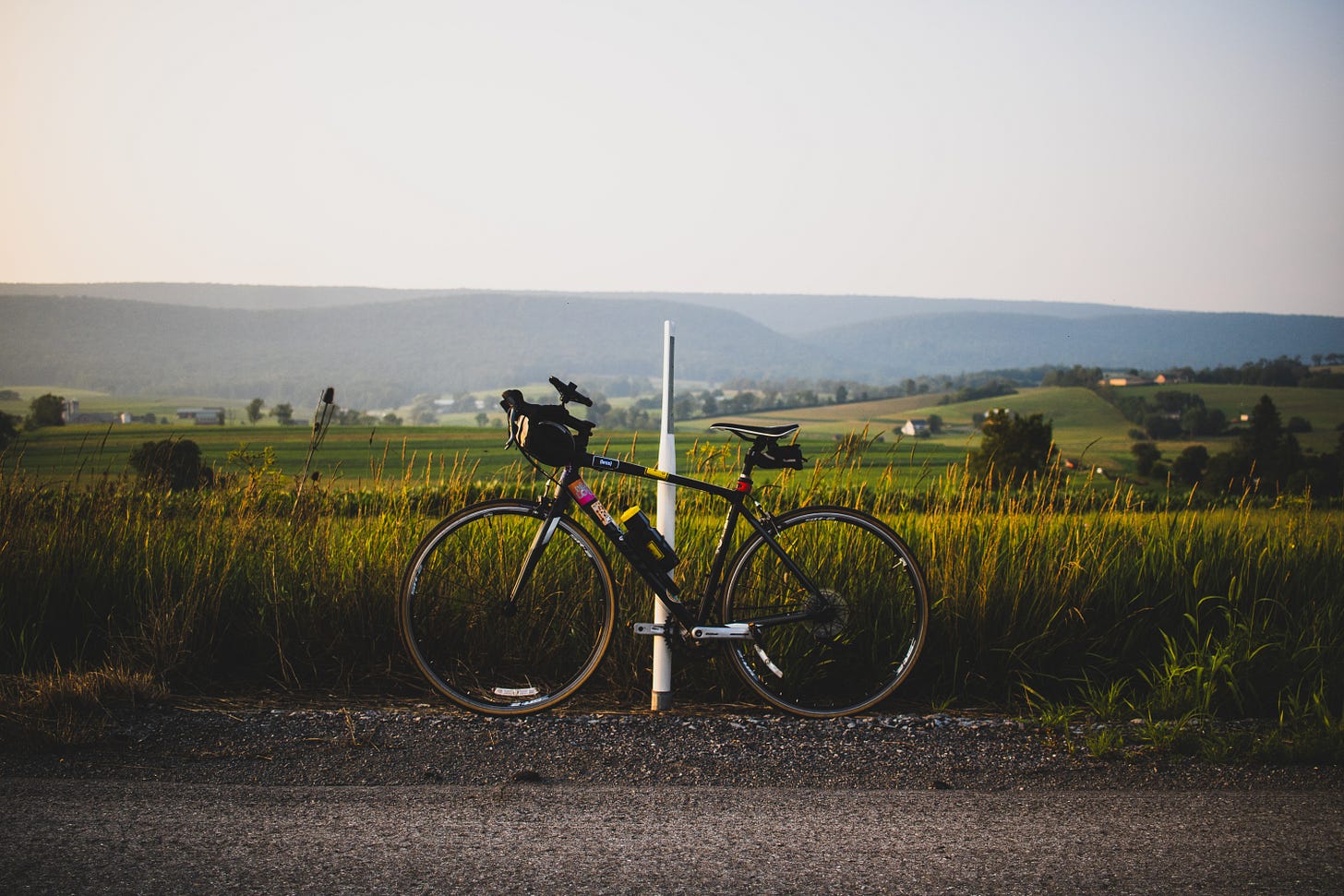
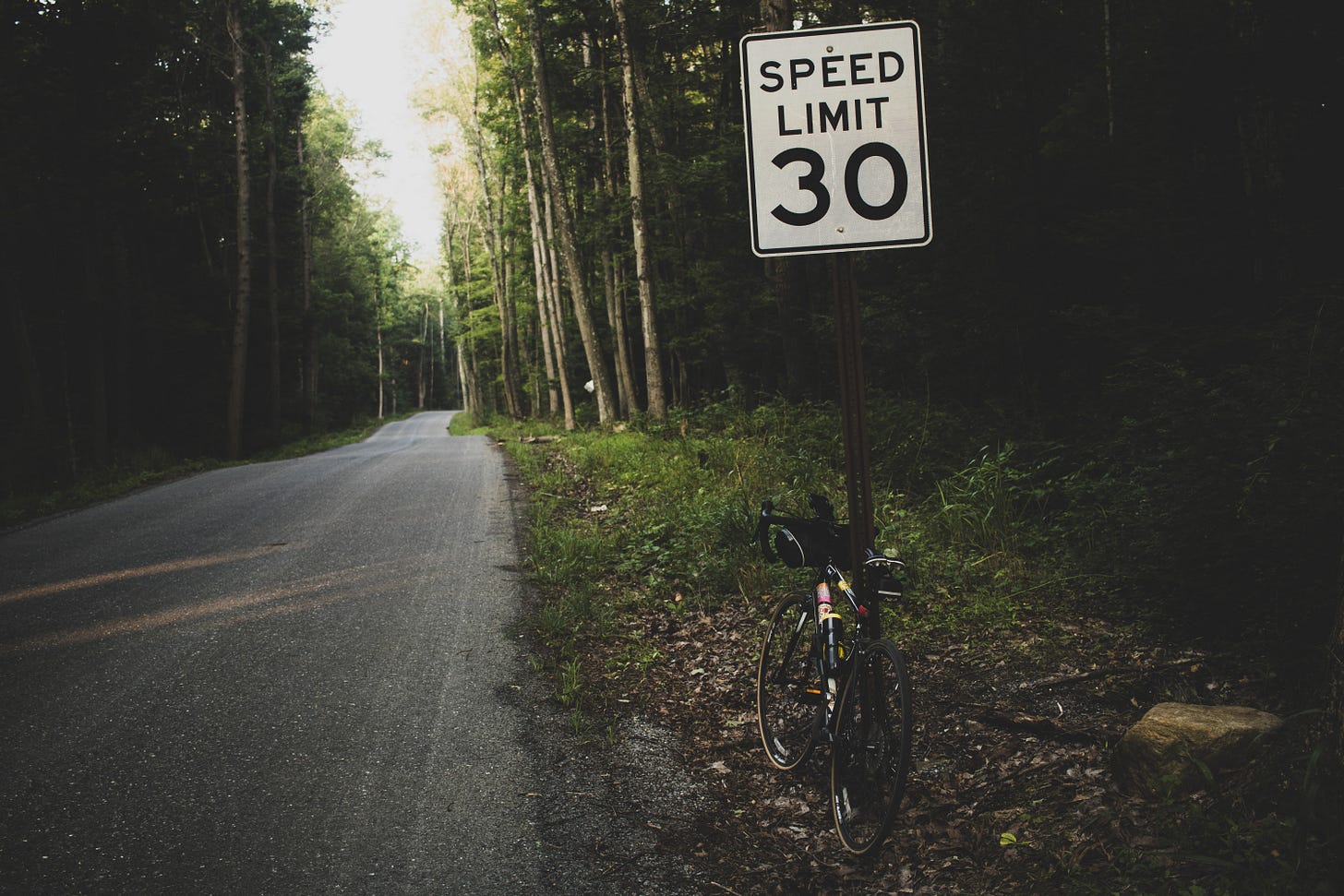
Loved this! I was nodding along the whole time. My bike’s been in winter storage, but reading this is inspiring me to get it out as we head into non-snowy months
I so agree! Biking feels soo good for all these reasons. I have fallen in love with it the past few years.